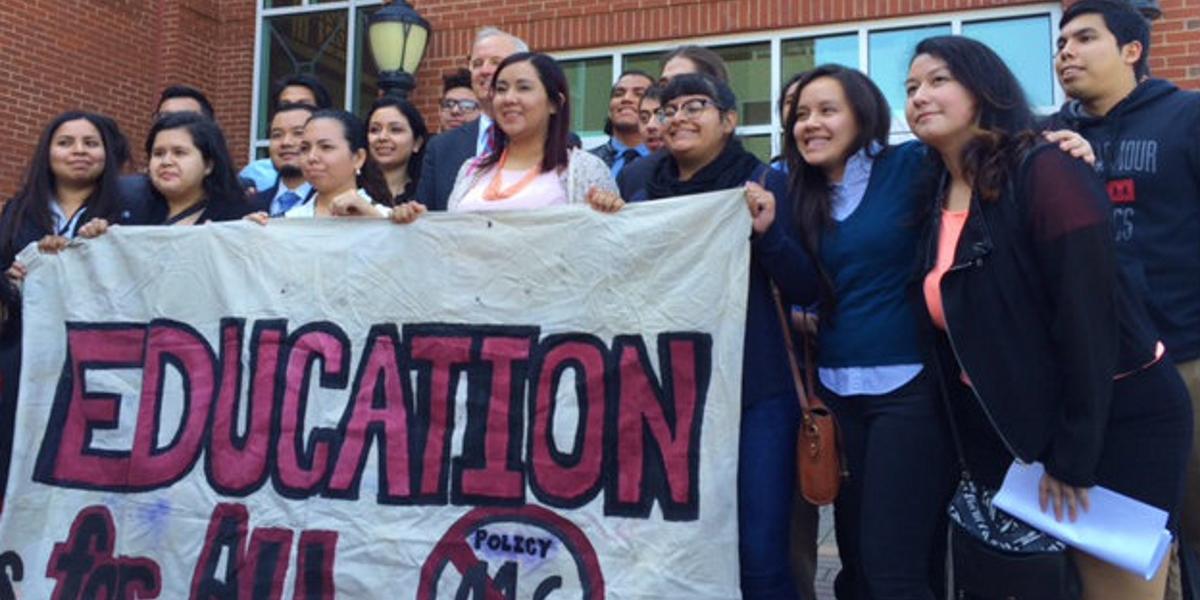Two Georgia public universities that had barred students without legal status will now admit them if they’re qualified, according to a spokesperson with the University System of Georgia Board of Regents.
Georgia State University and Augusta University were among five schools that fell under a Board of Regents policy that bars universities from accepting students living in the country illegally if the school hasn’t accepted all of its academically qualified applicants in the past two school years. The policy also applies to students who have DACA, or Deferred Action for Childhood Arrivals, a program created by President Obama in 2012.
“Based on the most recent admissions data, Augusta University and Georgia State University are being removed from the list of institutions under Policy 4.1.6 because they have admitted all academically qualified applicants through general admissions during the last two years,” the Board of Regents said in a statement.
The schools were informed of the changes Friday, according to board spokesperson Charlie Sutlive. Three other schools – the University of Georgia, Georgia Institute of Technology and Georgia College and State University – still do not admit students without legal immigration status under the Board of Regents’ policy.
The Mexican American Legal Educational Fund (MALDEF), a Latino civil rights organization, sued over the policy earlier this year in federal court for DACA students.
“At the end of the day, this is about forcing the regulators in Georgia to get out of the business of immigration control and into the business of educating Georgia students,” said Burth Lopez, staff attorney at MALDEF. “At the end of the day, the state of Georgia and their communities lose when some of their best and brightest have to leave the state.”
Laura Emiko Soltis, executive director of Freedom University, a group that helps undocumented students in Georgia, said while the news is a good step, it wasn’t enough because they still must pay out-of-state tuition according to the Board of Regents’ policy.
“Undocumented students overwhelmingly come from low-income communities and families,” he said. “This in-state tuition ban is effectively barring them from higher education in the state.”
The in-state tuition issue has been the topic of several lawsuits in recent years – at least two of which are still pending.
The Board adopted the policies in 2010, and has said it was to comply with state and federal laws.
“These laws require public higher education – including the University System – to ensure that only students who can demonstrate lawful presence are eligible for certain public benefits, including in-state tuition or access to institutions that admit students on a competitive basis,” the Board in a statement said.
Like us on Facebook

9(MDAxODM0MDY4MDEyMTY4NDA3MzI3YjkzMw004))








